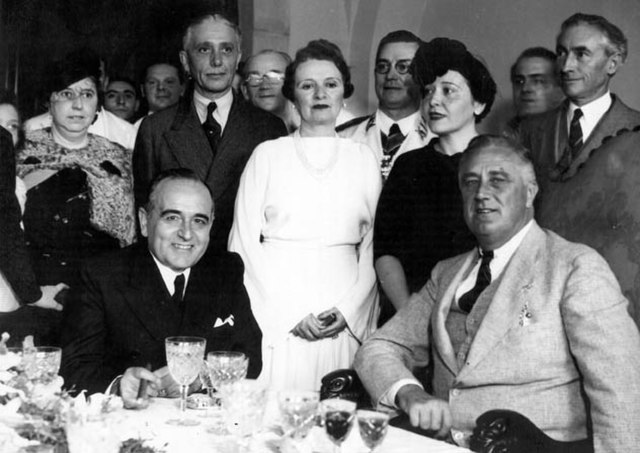The Moore-McCormack Lines was a series of companies operating as shipping lines, operated by the Moore-McCormack Company, Incorporated, later Moore-McCormack Lines, Incorporated, and simply Mooremack, founded in 1913 in New York City. It ceased trading on its buy-out in 1982. The founders were Albert V. Moore (1880–1953) (director/president) and Emmet J. McCormack (director/treasurer), with Mr Molloy (director/secretary).
From 1938 Moore-McCormack ran the "Good Neighbor Fleet" liners Uruguay, Brazil and Argentina between New York and the east coast of South America
Image: Moore Mc Cormack Good Neighbor passenger liner
Image: Moore Mc Cormack Good Neighbor passenger liner
Image: Moore Mc Cormack Good Neighbor passenger liner
The Good Neighbor policy was the foreign policy of the administration of United States President Franklin D. Roosevelt towards Latin America. Although the policy was implemented by the Roosevelt administration, President Woodrow Wilson had previously used the term, but subsequently went on to justify U.S. involvement in the Mexican Revolution and occupation of Haiti. Senator Henry Clay had coined the term Good Neighbor in the previous century. President Herbert Hoover turned against interventionism and developed policies that Roosevelt perfected.
Brazilian President Getúlio Vargas (left) and US President Franklin D. Roosevelt (right) in 1936
Nelson Rockefeller, Coordinator of Inter-American Affairs (1940)
Carmen Miranda became the muse of the Good Neighbor policy.
Pamphlet describing Chile as a "tourist paradise" during the 1939 World's Fair





